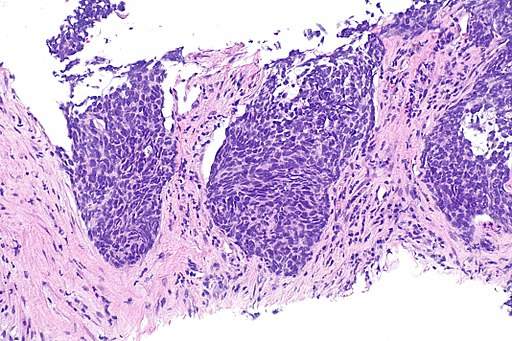
Anglo-Swedish biopharma AstraZeneca has reported post-progression outcome data from its Phase III FLAURA trial, investigating the efficacy and safety of Tagrisso (osimertinib). The trial examined Tagrisso as a first-line therapy for patients with locally advanced or metastatic epidermal growth factor receptor (EGFR) mutation-positive non-small cell lung cancer (NSCLC).
The data was presented during the ‘Best of ELCC’ session at the European Lung Cancer Conference (ELCC) in Geneva. Results showed that the progression-free survival (PFS) of first line Tagrisso over the EGFR tyrosine kinase inhibitors (TKIs) erlotinib or gefitinib was sustained throughout post-progression outcomes.

Discover B2B Marketing That Performs
Combine business intelligence and editorial excellence to reach engaged professionals across 36 leading media platforms.
Tagrisso is an irreversible EGFR-TKI designed to inhibit both EGFR-sensitising and EGFR T790M-resistance mutations with improved clinical activity against CNS metastases.
The trial examined Tagrisso 80mg given once daily, compared with standard-of-care EGFR-TKIs; either 150mg erlotinib or 250mg gefitinib, both also given once daily. A total of 556 patients were enrolled across 29 countries, all of whom suffered from locally-advanced or metastatic EGFRm NSCLC, for which none had received prior treatment.
At the time of data cut-off, 49% of patients taking Tagrisso had discontinued treatment compared with 77% patients on the EGFR-TKI comparator arm, and 29% of those taking Tagrisso received subsequent treatment compared to 46% on the comparator arm.
Patients on the first-line Tagrisso arm had almost half the risk of second progression or death (PFS2) compared with the comparator arm.

US Tariffs are shifting - will you react or anticipate?
Don’t let policy changes catch you off guard. Stay proactive with real-time data and expert analysis.
By GlobalData“The new analysis from the FLAURA trial shows that first-line treatment with Tagrisso has a sustained effect beyond subsequent therapy by almost halving the risk of a second progression or death,” AstraZeneca chief medical officer Sean Bohen said.
“These findings build on the clinically-meaningful PFS benefit of Tagrisso and reinforce its potential as a new standard of care.”
The results also showed the average time until the first subsequent therapy or death was 23.5 months for those on Tagrisso, in comparison with 13.8 months for patients taking erlotinib or gefitinib. The former group also experienced a longer time before discontinuation of EGFR-TKI therapy, with an average of 23 months as compared with an average of 16 months for comparator arm patients.
Safety data for first line Tagrisso in FLAURA were in accordance with those seen in prior clinical trials. The most common adverse effects were rash, diarrhoea and dry skin.
“Post-progression outcomes are increasingly recognised as important measures of efficacy for first line cancer therapies,” Thoracic Tumour Board associate professor of medicine Dr David Planchard said.
“The consistency in risk reduction across these endpoints in FLAURA provides confidence in the data from the interim overall survival analysis.”
In recent years there has been an increased focus on the impact of treatment on survival, as well as disease progression in patients taking a newly introduced therapy.
“OS remains the gold-standard measure of efficacy in cancer…but assessing [it] is sometimes more difficult than it would seem,” AstraZeneca’s Dr. Yuri Rukazenkov said.
“As a result of these complexities, additional endpoints, such as PFS, are used…for many therapies, receiving marketing approval based on the PFS benefit demonstrated by the therapy marks the end of the development process.
“Ultimately, the shift in looking towards multiple endpoints, like PFS, OS and post-progression outcomes, is reflective of the shift from treating all patients with medicine to a multi-pronged, targeted approach that aims to match the right treatment with the right patient at the right time.”
Lung cancer is the leading cause of cancer-related death, making up around a fifth of all cancer deaths. Around 10% to 15% of patients in the US and Europe and 30% to 40% of patients in Asia have EGFRm NSCLC.
Approximately half of patients develop a resistance to approved EGFR-TKIs such as gefitinib, erlotinib and afatinib as a result of EGFR T790M resistance mutation.
Tagrisso is already approved in more than 75 countries for the treatment of EGFR T790M mutation-positive advanced NSCLC, including the US, EU, Japan and China. The drug is also being investigated in the adjuvant setting and in combination with other treatments.





